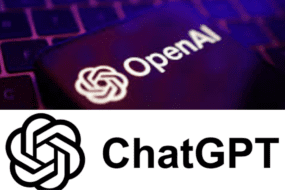As Google faces one of its most consequential antitrust trials to date, OpenAI has surfaced as a potential player in the aftermath. In a surprising courtroom revelation, the AI company expressed interest in acquiring Google Chrome—if the court compels Alphabet Inc. to divest the browser due to competition concerns.
The disclosure was made by Nick Turley, OpenAI’s Head of Product for ChatGPT, during testimony in Washington. The U.S. Department of Justice (DOJ) argues that Google has sustained an unlawful monopoly in online search and advertising, proposing drastic measures—including selling off major assets like Chrome—to restore balance in the digital ecosystem.
OpenAI’s interest in Chrome isn’t arbitrary. In July 2023, the company approached Google for access to its search API after its previous provider failed to meet performance expectations. In an internal email presented during the trial, OpenAI stated, “We believe having multiple partners, and in particular Google’s API, would enable us to provide a better product to users.” Google declined the request, reportedly over competitive concerns.
AI, Browsers, and the Search for Real-Time Intelligence
Since the failed API deal, OpenAI has leaned on Microsoft’s Bing to power its search features within ChatGPT. Turley explained that real-time and reliable search capabilities are vital for delivering timely responses to users—a challenge that ChatGPT isn’t ready to tackle on its own just yet. “We’re still years away from being able to independently handle most search-like queries,” he added.
Owning a browser like Chrome could offer OpenAI a significant edge. Integrating AI directly into browsing experiences may fast-track the company’s efforts to provide more intelligent, context-aware services. It also highlights how tightly woven browser infrastructure and artificial intelligence have become in the race to lead the next era of web search.
The antitrust trial has further revealed Google’s long-standing tactics to solidify dominance, including default search agreements with manufacturers like Samsung. Internal records showed that similar exclusive arrangements were considered for Chrome and its Gemini AI app. Though Google has recently loosened these deals, the DOJ insists tougher actions are needed—such as banning payments for preinstalled search engines and enforcing divestitures.
- OpenAI’s Advertising Ambitions: ChatGPT Set to Enter the Ads Game
- Nigeria Ranked 72nd for AI Readiness … But What Does That Actually Mean for You?
- AI Readiness: See Where Nigeria Ranks According to Oxford
- Nigeria Opens First National AI Centre at the University of Jos
- OpenAI Introduces ChatGPT Health for Wellness Support
- Aptech Unveils Cross-Border AI Degree for Nigerian Tech Students







No Comments